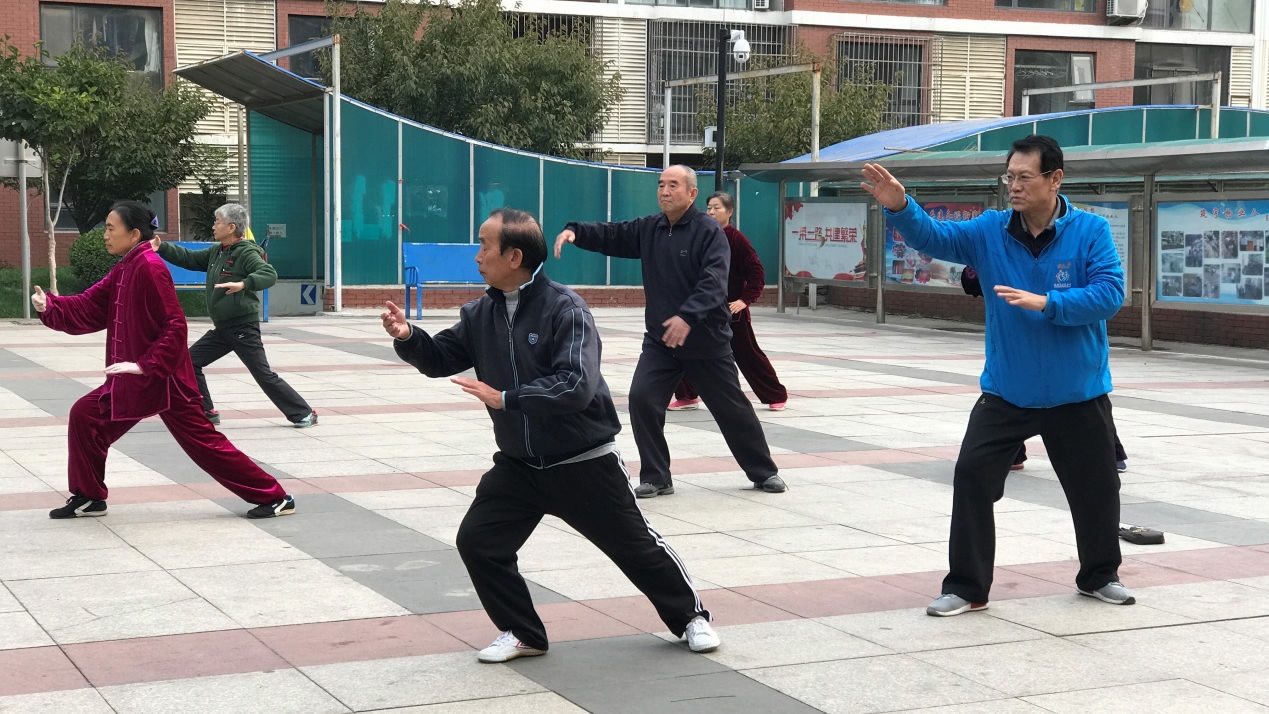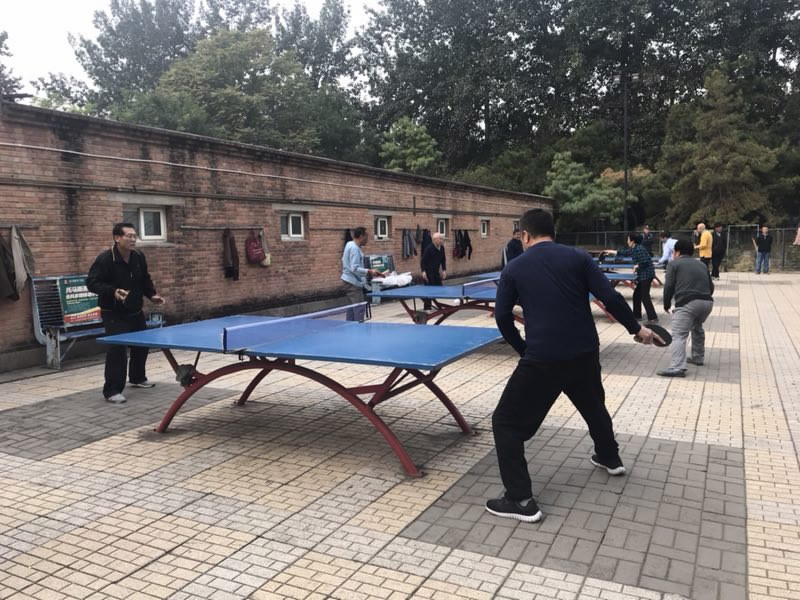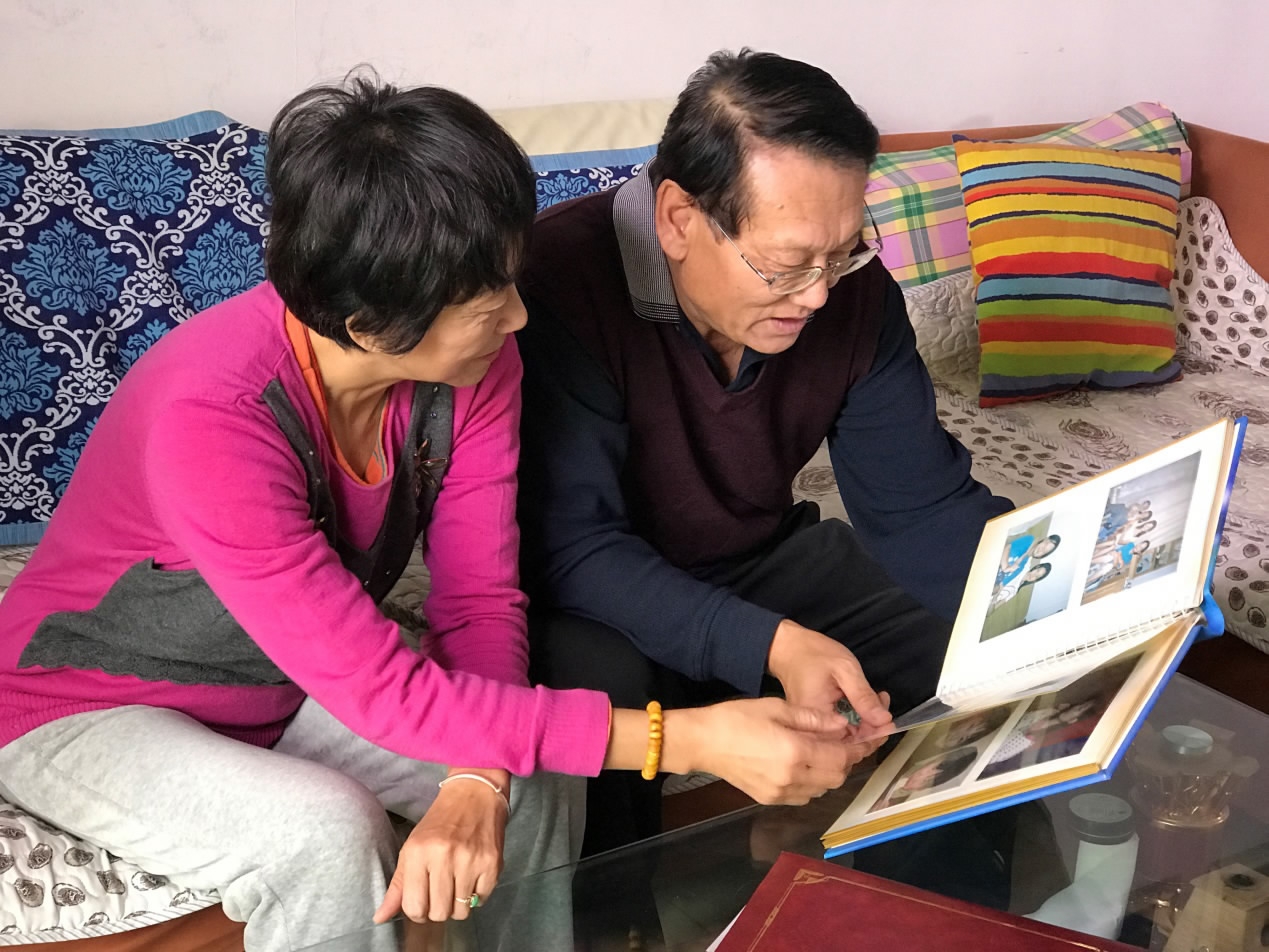
China
22:39, 20-Oct-2017
A day in the life of a retiree in China
By Yao Chin

Gone are the days when you could spot a handful of old men walking their pet birds in the parks. Though many other retiree traditions are still going strong, including practicing Tai Chi before breakfast and gathering to play mahjong in public gardens.
But how people spend their time in retirement in modern day China has come a long way. And it has had to – 16.7 percent of its population is now 60 and above, the retirement age for men. Thanks to constantly improving healthcare, life expectancy continues to rise.
So with a long and healthy retirement to look forward to, most pensioners in China are no longer passive. They’re active. Just like Shang Dehua, a recent retiree who worked as a driver for 30 years.

Chinese senior citizens playing table tennis outside / CGTN Photo
Chinese senior citizens playing table tennis outside / CGTN Photo
After an hour of Tai Chi, it’s on to table tennis. It’s not for competition, only fun. But it’s not just about exercise. Many Chinese pensioners now have the funds to travel and take up new hobbies they couldn’t afford before.
Shang is a keen photographer, and he takes it much more seriously than the typical phone on a selfie stick.
Today he’s learning about the theory of documentary photography. His course lasts eight months, and Shang has been able to fund both the tuition fees as well as his camera equipment.
He’ll get a certificate when the course ends, but he’s looking to get much more from it than that.
That brings us to a major factor determining retirement plans in modern day China. Even under the one-child policy, it had become practically tradition to expect a grandchild, and to focus much of one’s retirement caring for that grandchild.

A senior couple looking at photo albums /CGTN Photo
A senior couple looking at photo albums /CGTN Photo
But changes in lifestyle of the younger generation have led to many more Chinese people having children later, if not at all, which in turn brings uncertainty to many would-be grandparents.
“We call it 'utmost happiness' which means we want a grandchild. But we can't change the opinions of the younger generation. They have their own plans for their careers, and grandchildren have to be postponed. Some people don't want a child. I understand this and don't want to interfere with my daughter's affairs,” said Shang.
“Compared with my parent's generation, today's retirees are much better off. The older generation went through a tough period when they were young, so when they got old, they were in poor physical health. They didn't have many opportunities either. Since then, people's living standards have gone up,” Shang added.
The Chinese government has previously acknowledged that there is quite a big gap between the reality faced by some of the elderly, and the happiness they were expecting in retirement. But that gap is closing.

SITEMAP
Copyright © 2018 CGTN. Beijing ICP prepared NO.16065310-3
Copyright © 2018 CGTN. Beijing ICP prepared NO.16065310-3